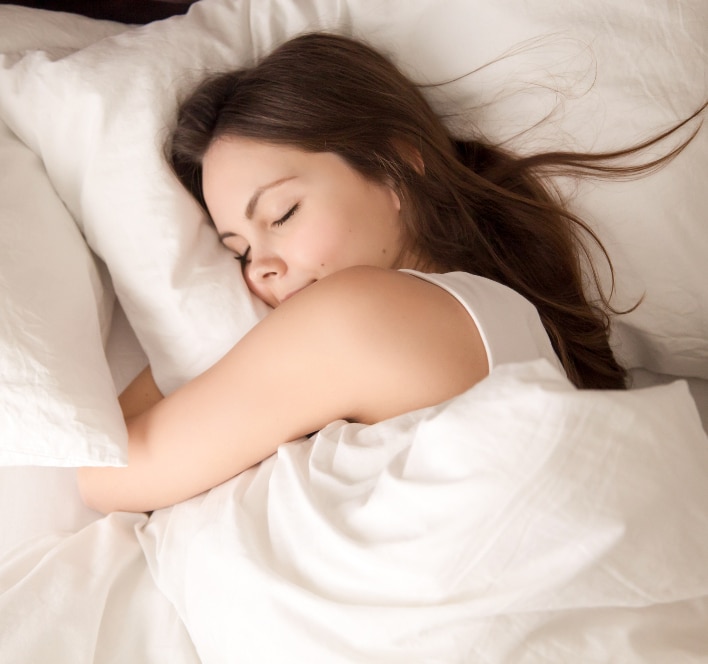Getting adequate sleep after a hip arthroscopy can be challenging. However, getting good quality sleep can help the recovery process substantially. When your body experiences a large event like surgery, it needs all of the rest it can get. Here are some tips on how to aid your body in getting restful sleep after hip joint surgery.
Helpful Tips to Help You Sleep after Hip Arthroscopy
You might be wondering what the best sleeping positions are after you’ve gone through hip surgery. Discomfort and pain can be normal symptoms of healing, but they can also be obstacles to falling asleep and staying asleep. Because of this, you may be enticed to keep moving around to try and get comfortable. This is not the best remedy because it can be rough on your body.
Try the following sleeping positions instead to keep you comfortable and rested:
- When sleeping on your back, try putting a pillow between your knees.
- Avoid crossing your surgical leg across the middle of your body.
- When sleeping on your non-operative side, try putting a pillow between your legs.
- Avoid bending your knees.
When trying to get sleep after a hip arthroscopy, there are a few actions to avoid to help you sleep and aid in recovery. Avoid the following:
- Sleeping on your stomach
- Sleeping with a pillow under your knees
- Turning or twisting your leg inward
- Crossing your legs or ankles
- Napping throughout the day
Though it can be tempting to get into any position or habit you can to get some sleep, it is important to avoid some actions in order to maintain a speedy healing process.
What Causes Poor Quality Sleep after Hip Arthroscopy?
There are other reasons as to why you may be getting poor quality sleep apart from the surgery itself. It is essential to be aware of the causes so you can know what to expect as you slowly recover. Below are a few reasons you could be experiencing a disrupted sleep schedule:
Your Body Experienced Stress Due to Surgery
Your body undergoing a hip joint surgery can impact your quality of sleep because it can be a highly stressful procedure to undergo. However, at NJ Spine & Orthopedic (NJSO), we are proud to offer innovative, state-of-the-art technology that mitigates this issue by being able to perform procedures less invasively and in less time.
You Are Experiencing Pain
Pain is the biggest contributor to lack of sleep post-surgery. Commonly, patients who get to sleep can’t seem to stay asleep because they are woken up by their hip pain.
Medications Are a Contributing Factor
Depending on the medication your surgeon prescribes, you may have trouble sleeping as a result of the medication. However, they are necessary to help manage pain and inflammation post-surgery.
Change in Activity
Working with a physical therapist can help remedy some issues involving changes in activity due to surgery. Patients tend to use different muscle groups and exercise differently as they recover.
Speak with a Spine Specialist at NJSO for Specific Sleep Remedies Post-surgery
Help your body recover from surgery faster by following the simple tips shared above. If you continue to have sleep issues, consult a spine specialist at NJ Spine & Orthopedic for guidance regarding post-surgery care.
Our medical team of physicians, neurosurgeons, spine surgeons, and orthopedic specialists have successfully performed thousands of minimally invasive procedures such as hip arthroscopies and have the insight to remedy your post-surgery sleep issues. Our prioritization of using state-of-the-art technology ensures that patients heal from their procedures faster and get back to enjoying their life pain-free. Call us today at (866) 272-9271 or fill out our contact form to schedule a consultation today with our highly experienced specialists.

